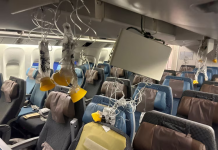India and the US have held the first strategic trade dialogue under the recently-launched cooperation in critical and emerging technologies such as semiconductors, space, AI and defense with the goal of “enabling co-production, co-development and enhanced industrial collaborations” in these sectors.
The meeting was held here on Tuesday. Foreign Secretary Vinay Kwatra led the India delegations and Undersecretary of State Victoria Nuland and Undersecretary of Commerce Alan Estevez co-led the US side.
The delegations met ahead of a highly anticipated summit meeting of Prime Minister Narendra Modi and President Joe Biden here on June 22 which will include a state dinner and a joint address by the Indian leader to the US Congress, his second.
The India-US Strategic Trade Dialogue is being called a “key mechanism” to take forward cooperation under the India-US initiative on Cooperation in Emerging Technologies (iCET) launched earlier this year by Ajit Doval and Jake Sullivan, the national security advisers of the two countries. They were following up the announcement of this initiative by Modi and Biden in May 2022.
At the ICET meeting, the US side had given an assurance that it would fast-track the review and approval process of an application from General Electric to co-produce jet engines in India that could “power jet aircraft operated and produced indigenously by India”.
The two sides could announce the project during the Prime Minister’s visit, recent reports said, although neither party has officially given any indication.
India’s Tejas light combat fighter jets currently use GE’s F404 engines and the state-owned Hindustan Aeronautics Ltd (HAL) signs a $716 million contract with the American firm in 2021 for 99 of these engines, which are scheduled for delivery by 2029. HAL has said it planned to use Ge’s 414 engines for its second generation of Tejas.
In the current deal, there is no transfer of technology for co production; just the finished engines are shipped to India to be mounted on the Tejas mainframe. Co-production will mean transfer of GE’s jet engine technology to India.
These and other technology transfers are subjected to close scrutiny by the US under its export control regime. The two sides said these regimes were discussed and reviewed at the meeting on Tuesday. “Both sides reviewed the relevant bilateral export control regulations with the objective of building and diversifying resilient supply chains for these strategic technologies,” the Indian Embassy said in a statement.
“They reviewed ongoing cooperation in multilateral export control regimes and agreed to share best practices. Both sides agreed to enhance awareness among the industry, academia and other stakeholders about the export control regimes through workshops and other activities.”
Technology transfer has been a difficult discussion between the two sides. India has pressed American suppliers — as other major arms manufacturing countries — to include transfer of technology as a part of any deal to facilitate indigenisation for production for local use and export. American manufacturers have been reluctant arguing that, among other things, the Indian market is not large enough to merit transfer of proprietary technology.
20230607-190603




